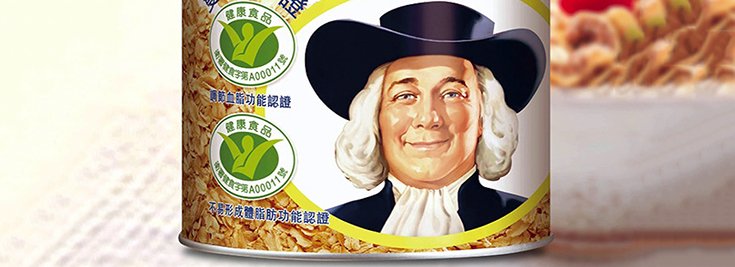Taiwan Recalls Quaker Oats After Finding Traces Of Glyphosate

Taiwan has recalled Quaker Oats after a random inspection by the country’s Food and Drug Administration (FDA) detected glyphosate in amounts exceeding the nation’s legal limits in 10 out of 36 products.
It has been a rough month for Quaker Oats. The company has been under intense public scrutiny since trace amounts of glyphosate, the toxic ingredient in Monsanto’s Roundup, was detected in its products. A class action was filed in early May over the discovery by consumers who allege Quaker Oats’ “100% natural” label constitutes false advertising.
Read: U.S. FDA to Test for Monsanto’s Glyphosate Herbicide In Food
According to the Taiwanese FDA, the amount of glyphosate in a shipment of Quaker Oats products exceeds acceptable levels of the herbicide. The 10 products were found to have glyphosate residue levels between 0.1 parts per million (ppm) and 1.8 ppm.
The products containing excessive glyphosate include:
- Old Fashioned Quaker Oats
- Quaker Quick 1-Minute Oats
- Coach’s Oats
- Bob’s Red Mill Instant Rolled Oats
- Fifty-50 Hearty Cut Oatmeal
- McCann’s Imported Irish Oatmeal
- Australia Fine Oat Flakes
Some 137,000 pounds of oatmeal has been recalled, most of it originating in the United States. The items were pulled following the agency’s first random inspection of oatmeal products imported into Taiwan’s market.
Report: Glyphosate Is Most Heavily Used Herbicide In History
Taiwan has zero tolerance for glyphosate levels in oatmeal products, versus a set limit, as the nation does not produce oats. In the U.S., glyphosate residue limits cannot exceed 30 ppm. Other countries have much lower limits: 20 ppm in Japan and the EU, 15 ppm in Canada, and just 0.1 ppm in Australia. [1]
EcoWatch reports that commercial cultivation of GMO crops is banned in Taiwan, and all products containing GMOs must be labeled under Taiwanese law. In December 2015, Taiwan banned schools across the nation from serving GMOs to students, citing health and safety concerns.
Taiwan’s FDA cited studies suggesting that animals can tolerate fairly high levels of glyphosate, and that it doesn’t harm their nervous system, but high exposure to the herbicide in rats has caused slight weight loss, liver enlargement, and kidney inflammation.
In a statement to The New York Times, Quaker defended itself, saying:
“Any levels of glyphosate that may remain are trace amounts and significantly below any limits which have been set by the EPA as safe for human consumption.”
Sources:
[1] Digital Journal
